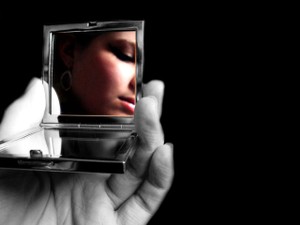Is Your Teen Depressed? Learn the Signs
Mental health challenges and increasing rates of substance abuse behaviors remain linked throughout life, and research proves that adolescents who experience a major depressive episode are twice as likely to use and abuse alcohol, and more than twice as likely to use and abuse illicit drugs.
People of all ages enduring depression may turn to alcohol or illicit drugs as a way of self medicating the experienced symptoms of the psychiatric disorder, but although while intoxicated teens may feel some relief from negative affective symptoms, the use and misuse of alcohol or illicit drugs almost invariably worsens the negative symptoms of a depressive disorder, and makes eventual treatment more complicated.
Because the teenage years are a period of exploration, and sometimes rapidly oscillating changes and behaviors, parents too often misdiagnose an occurring depression…attributing unusual behaviors as a normal part of the maturing process. While teens do exhibit sometimes erratic behaviors, there are a number of symptoms of depression that if exhibited cannot be considered normal, and may indicate an experienced psychiatric depressive condition.
What Are the Symptoms of Depression in Teens?
People experiencing a depressive episode often initially misattribute the experienced sensations as a normal period of sadness, but if symptoms are severe and last for more than a few weeks, they are not simply transient feelings, but represent a real and significant psychological disorder.
Some common symptoms of depression in teens are:
- Apathy, or a loss of interest in previously enjoyable activities
- sudden weight gain or loss
- insomnia
- Pervasive sadness
- fatigue and lethargy
- feelings of worthlessness
- suicidal thoughts
Parents need to be on the lookout for teens that seem unusually apathetic, fatigued or "down", and if these symptoms persist for more than a few weeks, it is very likely that your teen is experiencing a significant mental disorder. Depression is very unpleasant, can be very dangerous, and is also quite treatable; and early intervention and therapeutic or pharmacological treatment can have real benefits.
If parents suspect depression, they should contact a medical professional, psychologist or psychiatrist for a professional diagnosis and for treatment advice.
Depression can run in families, so if there is a family history of the disorder, parents need to be especially vigilant for signs of a depressive episode.
Depression will not necessarily get better on its own, and because the risks of suicide and substance use and abuse are very elevated by feelings of depression, parents need to intervene, and intervene quickly.
Spotting a Depressive Episode
The best way that parents can be ready to spot a depressive episode or substance use or abuse behaviors is simply to stay involved and active in the lives of teenage children. Some seemingly abnormal behaviors are a normal expression of the transitory period of adolescence, but extreme symptoms such as symptoms of depression are not. By staying involved parents "know" their kids better, and are in a much better position to see problems before they become severe, and also to influence behavioral change amongst adolescent children.
The earlier a teen starts using or abusing alcohol or drugs, the greater their ultimate risk of developing substance abuse and dependency issues. If parents can keep kids away from drugs or alcohol until they are mature adults, they have done a great job keeping their kids safe from the dangers of drugs and alcohol.
Teens feeling depressed deserve quick therapy and appropriate treatment, and the costs of delaying treatment can tragic.
Post a comment 0
Copyright Notice
We welcome republishing of our content on condition that you credit Choose Help and the respective authors. This article is licensed under a Creative Commons License.
Helpful Reading:
-
 Overcoming Depression: Feeling Good Again with Mindfulness
Overcoming Depression: Feeling Good Again with Mindfulness
How Mindfulness can overcome depression, teach us how to ignore unwanted thoughts and help us choose what is healthy for ourselves.
Read the complete article -
 Use Gut Bacteria to Fight Anxiety and Depression
Use Gut Bacteria to Fight Anxiety and Depression
Imbalanced gut bacteria may increase your risk of anxiety, depression, obesity and a host of other diseases. Learn how digestive bacteria can cause anxiety and find out how dietary changes can help you instill or protect an optimal balance of beneficial bacteria.
Read the complete article -
 Depression, Chronic Pain & Opioid Misuse
Depression, Chronic Pain & Opioid Misuse
Learn how opioids can lead to depression, how depression worsens pain and what to do when you have both pain and depression.
Read the complete article

 John Lee
John Lee



